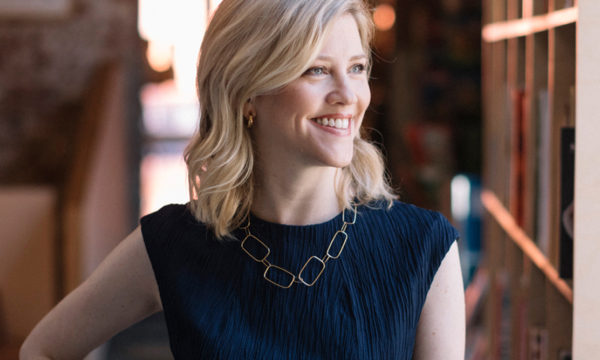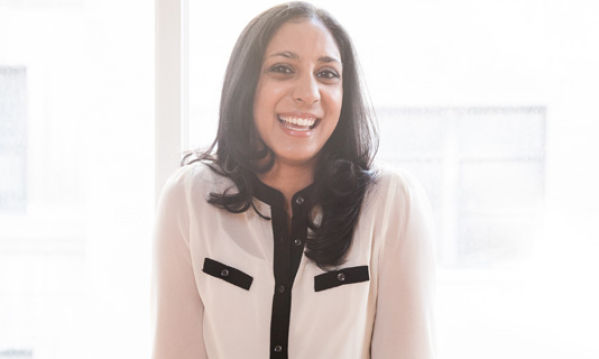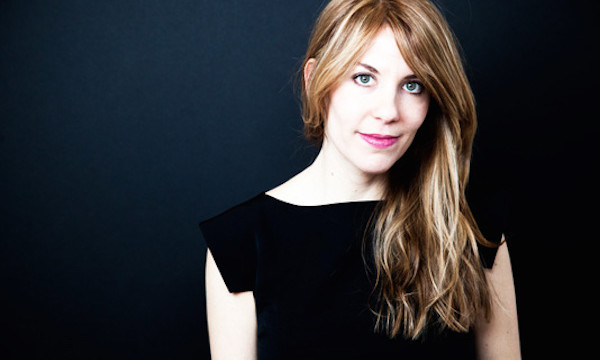Mary Cain Refuses to Stay in Her Lane
The championship runner faced controversy at a young age, and she’s excited to keep the momentum going.

Shop This Look
According to Mary, Salazar regularly abused her, both mentally and physically. Salazar’s all-male coaching team called her fat and told her she needed to lose weight in order to be competitive. Mary was publicly shamed in front of her teammates if she was over 114lbs, and, as a young woman trying to hold onto her dream of being the best athlete in the world, she was understandably afraid to speak up.
Then, something happened. The weight loss and calorie restriction caused Mary to lose her period for three years, which meant her body created less estrogen, thus weakening her bones. In five years, she broke five bones. She also experienced mental health issues, including suicidal ideation and self-harm. And although she tried to share what she was going through with her coach and teammates, nobody tried to help her. “There was never anybody who stood up and said, ‘This is emotional abuse, this is unhealthy, you can’t do this to people.’”
Want more M Dash?
Sign up for our weekly newsletter.
Thank you!
When Mary finally told her parents about the abuse and her concerns about her physical and emotional well-being, they immediately took her out of the program. She spent the next three years recovering from her injuries and working on her feelings around food, her body, and her worth. Then, in 2019, when Salazar was caught in a doping scandal and temporarily banned from coaching, Mary saw an opportunity to speak up. “It wasn’t until I read the report on the doping that I suddenly realized, ‘Oh my God, this program I was part of was abusive.’ As soon as I realized that, I couldn’t stay silent.”
Mary ended up sharing her story with the New York Times, and the response was overwhelming. “I wanted to speak up for the next girl who’s coming through the program,” says Mary. “I wanted them to know that having somebody treat you so poorly is not okay. I thought my story would stay within the running world, and of course that’s not really what happened. I think at this point, maybe 15 million people have watched the video and read my piece, and I think it really changed the conversation around what it means not only to be an athlete, but to be a coach.”
Below, Mary tells the M Dash about what it was like to publicly share her story and how speaking out about her past has shaped her path forward.

The day the story came out was very stressful, purely from a scheduling perspective. I was like, ‘How do I say yes to things? How do I say no to things?’ I’m a one-woman team. My mom’s not great with email. There’s only so much I could get to, while trying to be there to talk to people in a way that I just didn’t prepare myself for. But the actual asks were in no way stressful for me, because it was incredibly cathartic to talk about it and to talk to other people, hear their experiences, and connect with them in a way I just hadn’t been able to for years—because even some of the people who I got to know while I was in Portland never knew any of the stuff I was going through.
In retrospect for them, they’re like, ‘Oh my God, you always talked about your weight, or you always did this, or you’d say no to that.’ There was an aloofness to the person they got to know.And there’s been something really nice about almost being able to show them that wasn’t me, and this is what was happening, and even kind of re-imagine some of the friendships I’ve had over the years and regrow them in a way that’s more sustainable, because they’ve been able to see a little bit behind the curtain.


This experience changed my perspective on running. The truth was, I had such a weight on my shoulders about what it meant to be a runner and the external pressure that had developed during my time with this program, whether it was feeling like I was overweight, or this fear of what people would think of me if I didn’t perform to a certain level. After I had the freedom to see the program for what it was, which was unhealthy and problematic, and to be able to really share with people everything that happened, I now kind of get it. It’s just running, and there’s a freedom to knowing that if a run goes badly or if a run goes well, I still go home to my friends and family who still love me. I really, really, really want to do well in running, and I love it, and I’m crazy competitive, but I’m kind of back into the mindset that I had when I ran my best, which was…it’s just running.

It’s important to understand the dangers of being a young female athlete. I think for a lot of us, it’s very easy to see that it’s very typical for young athletes to develop disordered eating, and there are warning signs if a coaching relationship is an inappropriate one. But we really need to take these things seriously, because I know myself, and when I was 12 and saw the statistics, I would think, well, that’s not me. And because of that, I wouldn’t actually read the warning signs. It’s important that if you find yourself in that situation, you know you can talk to your parents, school officials, friends, and medical professionals. If you find yourself in that situation, there are ways to get out.

Over the last few months, I joined up with two nonprofit organizations. One is called Voice In Sport, which is a platform for young athletes—female athletes in particular—who are around 12 to 22. They have a campaign to make sure everybody goes out and registers to vote and remind young girls that they are important, their voices are important, and they should be heard. And then I’ve also recently joined a platform called EcoAthletes, which creates resources for athletes in different sports to learn about climate issues and how to talk about them. Particularly within the sports world, athletes are told to ‘stay in your lane’—but EcoAthletes wants to start teaching athletes how to speak publicly about climate change and speak on it with confidence and with a power that can ultimately help us take better care of the planet.
I also work for Tracksmith, which is a running apparel company. Traditionally in sports, athletes have what are considered independent contractor relationships with their said companies, but I am an actual employee of Tracksmith, which means along with training every day, I have a full-time job. Specifically, I’m New York City’s community manager. So when it comes to all things New York, I’m not only their boots on the ground because I live here, but also because I work on creating exciting resources for our local athletes.









